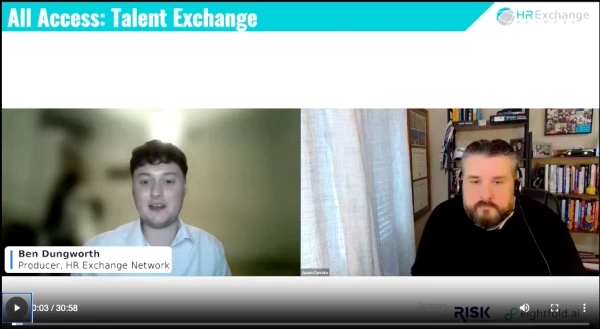What's the Real Cost of a Bad Hire?
Add bookmark
You’ve found the perfect hire … graduated from college at 16, photographic memory, and abundant certifications behind her name. So why have three seasoned employees refused to lead her on-the-job training? Well, she believes she already "knows everything." After all, she learned the right way to do things from a respected textbook and can recite each passage word for word. She doesn’t need to ask questions of her coworkers because they couldn’t possibly be more educated than she is. Suddenly, you realize her technical knowledge alone isn’t enough for her to be successful on the job. Could this perfect hire turn out to be a bad hire?
We all know that hiring the wrong person is costly. But just how costly depends on whom you ask. If you put "cost of a bad hire" into Google, you’ll immediately be directed to several blogs that cite other blogs that offer bullet points summarizing the overall cost as a percentage of the bad hire’s salary. Some take this a step further and break down the reasoning behind these costs (such as loss in productivity, training costs, interviewing/testing costs, HR costs, recruiting costs, etc.). Others bring the discussion full circle, detailing what companies should have done to avoid the bad hires in the first place. So what is the consensus and who should we believe?
Exactly how much does a bad hire cost organizations today?
We visited several different sources ranging from LinkedIn blogs, to the Harvard Business Review, to HR, Recruiting and Selection Firm blogs (see links below) to examine popular thought on this seemingly elusive question. Interestingly, most dialogue on the topic points back to the same sources and figures:
- Most common figure: The U.S. Department of Labor estimates that the average cost of a bad hiring decision can equal 30% of the individual’s first year potential earnings (U.S. Department of Labor, 2003).
- Most specific figure: It costs $7,000 to replace a salaried employee, $10,000 to replace a mid-level employee, and $40,000 to replace a senior executive (Recruiting Times).?
- Most general figure: Replacing supervisory, technical and management personnel can cost from 50 percent to several hundred percent of the person’s salary (Society for Human Resource Management, Recruitment and Selection Presentation, 2008).
- Most recent figure: 27 percent of employers in the U.S. who reported a bad hire said that a single bad hire costs more than $50,000 (CareerBuilder survey of 6,000 hiring managers and HR professionals worldwide, 2013).
If hard data on the topic is difficult to find, does the actual number even matter?
One would expect that organizations systematically gather data that allows them to calculate how costly a bad hire can be. In reality, this is seldom the case.
As a general rule of thumb:
- The higher the position within the organization (and thus higher the salary), the higher the cost of the bad hire
- The longer the ill-placed person has worked at the organization, the higher the cost of the bad hire.
- The more training wasted on the person, the higher the cost of the bad hire.
The simplest answer I can give is that the cost of a bad hire is significantly more than the cost of hiring the right person in the first place. That is, the cost of a bad hire will be higher than you expect and more than you can afford to lose. My advice to organizations would be to invest less in trying to figure out your losses and focus more on investing in people who will produce the greatest gains for your organization. A successful strategy espoused by EASI-Consult, LLC is to hire for attitude first and then train for technical skills.
Stop focusing primarily on where applicants went to school and how many degrees they have and start focusing more on what they can bring to your organization. In an evolving global economy, competencies such as innovation, adaptability, communication skills and working well with others are critical for most positions. Yet employers are hesitant, or perhaps don’t know how, to screen for these strengths. Likewise, employers know they want the employee to "fit" with the organization’s culture but aren’t sure what that means or how to assess it. Further, in a tough economy, organizations may falsely believe that employees’ unmet expectations will be swept under the rug; however, this is seldom the case and turnover remains a huge barrier. Perhaps most commonly noted, giving in to the temptation to hurry up and fill a position without a well-conceived systematic hiring strategy will no doubt lead to a costly bad hire.
As compelling as the figures for the cost of a bad hire may be, the more important number to focus on is the ROI (return on investment) for picking the right person the first time. As industrial and organizational psychologists, we have the tools to help organizations get the right people in the door and keep them. So as long as there are organizations suffering from costly bad hiring decisions, there will be those of us who are standing by and committed to using our expertise to help them make better hiring decisions.
Relevant Blogs:
http://www.hrmorning.com/the-cost-of-a-bad-hire-infographic/
http://theundercoverrecruiter.com/infographic-what-cost-hiring-wrong-employee/
http://blogs.hbr.org/2012/05/7-non-negotiables-to-prevent-a/
http://blog.adeccousa.com/hiring-mistakes-the-cost-of-a-bad-hire/
http://www.hireright.com/Background-Check-Fast-Facts.aspx
http://resources.dice.com/report/the-cost-of-bad-hiring-decisions/
http://thehiringsite.careerbuilder.com/2013/05/08/whats-the-cost-of-a-bad-hire-a-global-perspective/
Rebekah Cardenas, Ph.D., is a senior consultant at EASI·Consult®. EASI·Consult® works with Fortune 500 companies, government agencies, and mid-sized corporations to provide customized Talent Management solutions. EASI Consult’s specialties include individual assessment, online employment testing, survey research, competency modeling, leadership development, executive coaching, 360-degree feedback, online structured interviews, and EEO hiring compliance. The company is a leader in the field of providing accurate information about people through professional assessment. To learn more about EASI Consult, visit www.easiconsult.com, email ContactUs@easiconsult.com or call 800.922.EASI.



















